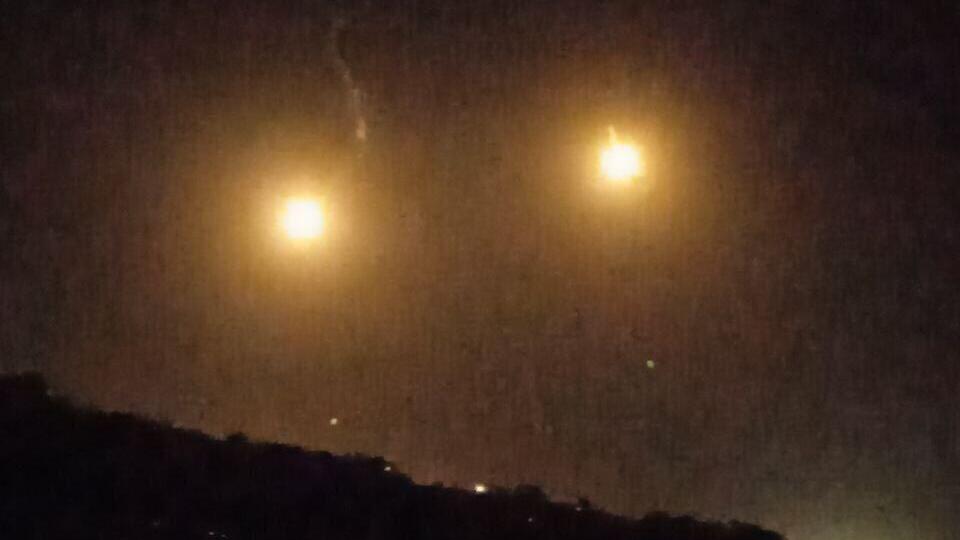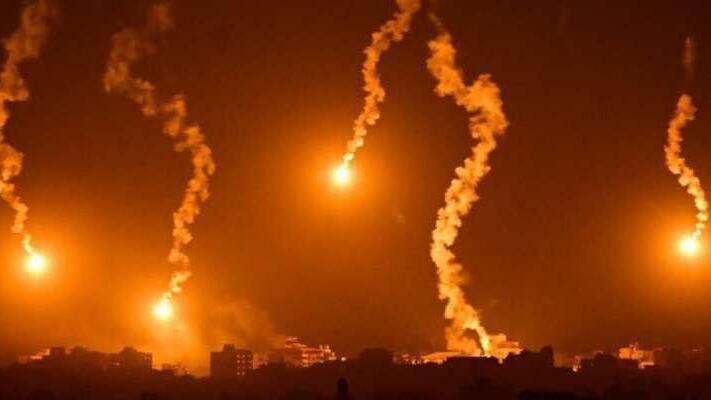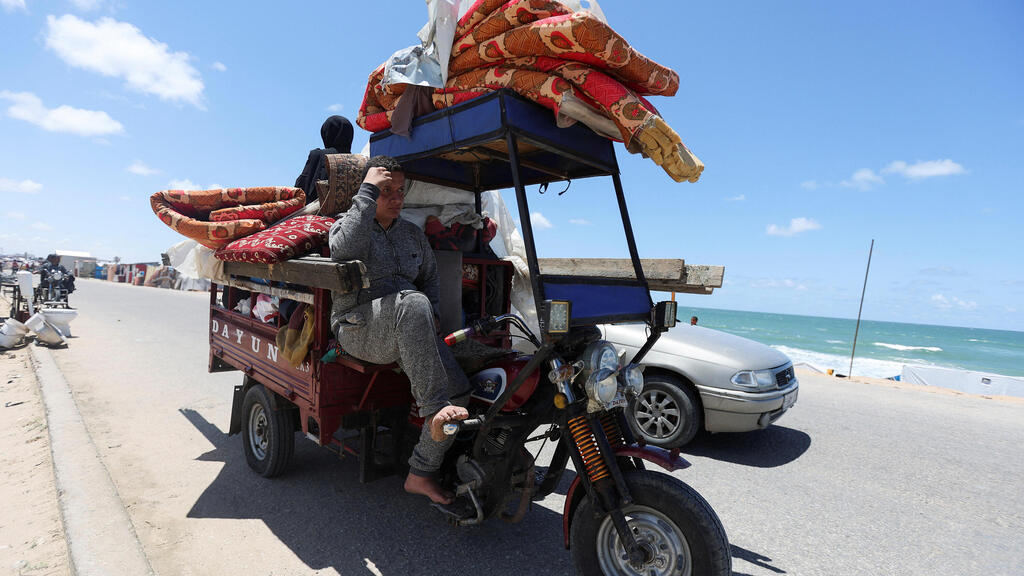Getting your Trinity Audio player ready...
About two hours after Hamas' responded positively to an Egyptian-Qatari cease-fire proposal, Palestinian and Arab media reported Monday evening that IDF forces and tanks began to enter Gaza's East Rafah, in following intense heavy shelling in the eastern area of the city.
The IDF spokesman confirmed the report and said that "IDF forces are attacking and operating now against targets of the terrorist organization Hamas in a targeted manner in East Rafah." The Palestinians reported that houses were blown up in the al-Shuqa area and around the Rafah Crossing, and that there was tank fire and artillery shelling from the east.
Shortly after the reports, the Prime Minister's Office said in a statement that "the War Cabinet unanimously decided that Israel will continue its operation in Rafah in order to exert military pressure on Hamas in order to promote the release of our hostages and the other goals of the war."
The cabinet was convened at the request of the Chief of Staff Major General Herzi Halevi and Defense Minister Yoav Gallant
It was also reported that "even though the Hamas proposal is far from meeting Israel's necessary requirements, Israel will send a delegation of working-class mediators to exhaust the possibility of reaching an agreement under conditions acceptable to Israel."
IDF shelling seen in Rafah
Israel claims that there is still a great distance from agreeing to a deal, but it is impossible to say no to Hamas' answer, and that is why a delegation is being sent to Cairo, while on the other hand preparations for the operation in Rafah are continuing.
A U.S. official familiar with truce negotiations between Hamas and Israel told Reuters on Monday that Israel still plans to proceed with a 90-day plan to invade Rafah, which Washington is committed to stopping.
"Netanyahu and the War Cabinet have not appeared to approach the latest phase of negotiations (with Hamas) in good faith," the official told Reuters, asking not to be identified because of the sensitivity of the matter.
UN Secretary General Antonio Guterres commented on the start of the operation in Rafah. "I reiterate my call urging both the government of Israel and the leadership of Hamas to go the extra mile necessary to fulfill an agreement and stop the current suffering. I am very concerned about the indications that a large-scale military operation in Rafah may be coming. We are already seeing movement of people, many of them are in a desperate humanitarian situation. They are looking for a safe space that has been rejected so many times."
Hamas announced earlier on Monday evening it has accepted an Egyptian-Qatari proposal for a cease-fire to halt the seven-month-long war with Israel in Gaza, hours after Israel ordered about 100,000 Palestinians to begin evacuating from the southern city of Rafah, signaling that a long-promised ground invasion there could be imminent. A Hamas official said that "we agreed to a six-week cease-fire."
a senior Israeli official called the so-called deal "a unilateral proposal without Israeli involvement. This is not the proposal we discussed with the Egyptians. This is an exercise by Hamas designed to present Israel as a refusenik."
Israeli officials added that "the Egyptians unilaterally flexed all the parameters so that Hamas would agree. This was done unilaterally and this proposal is not acceptable to Israel." According to an Israeli official, "it sounds like a drill."
At the same time, an official briefed on the cease-fire talks said Hamas agreed to the latest proposal that Israel had made on April 27 and there were no major changes since then, adding the Qatari mediators had spoken to Hamas about this on Sunday and Monday. "What happens next depends on Israel to accept or reject Hamas' response. The ball is in Israel's court," the source told Reuters, asking not to be identified because of the sensitivity of the matter.
First published: 22:48, 05.06.24







